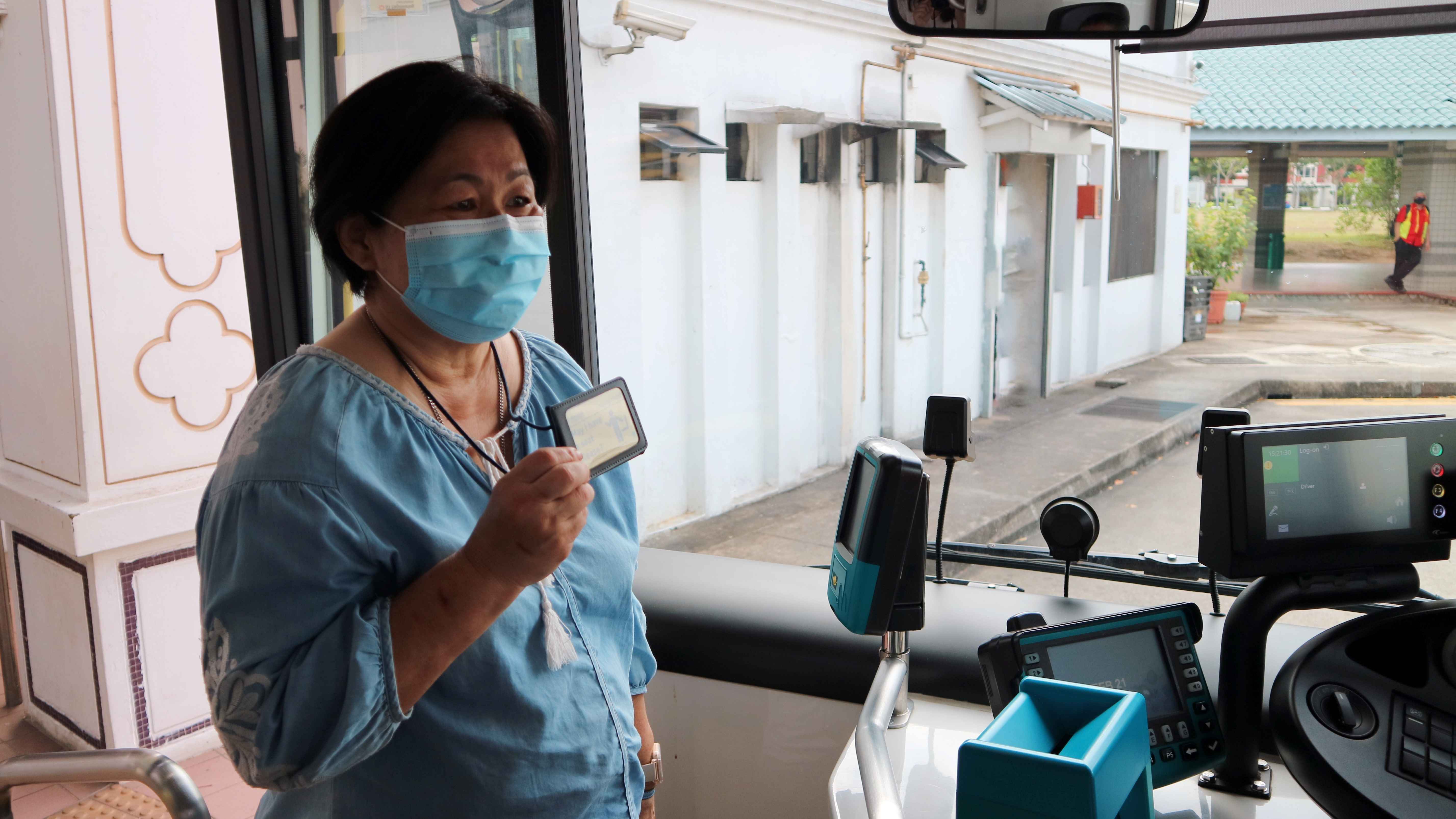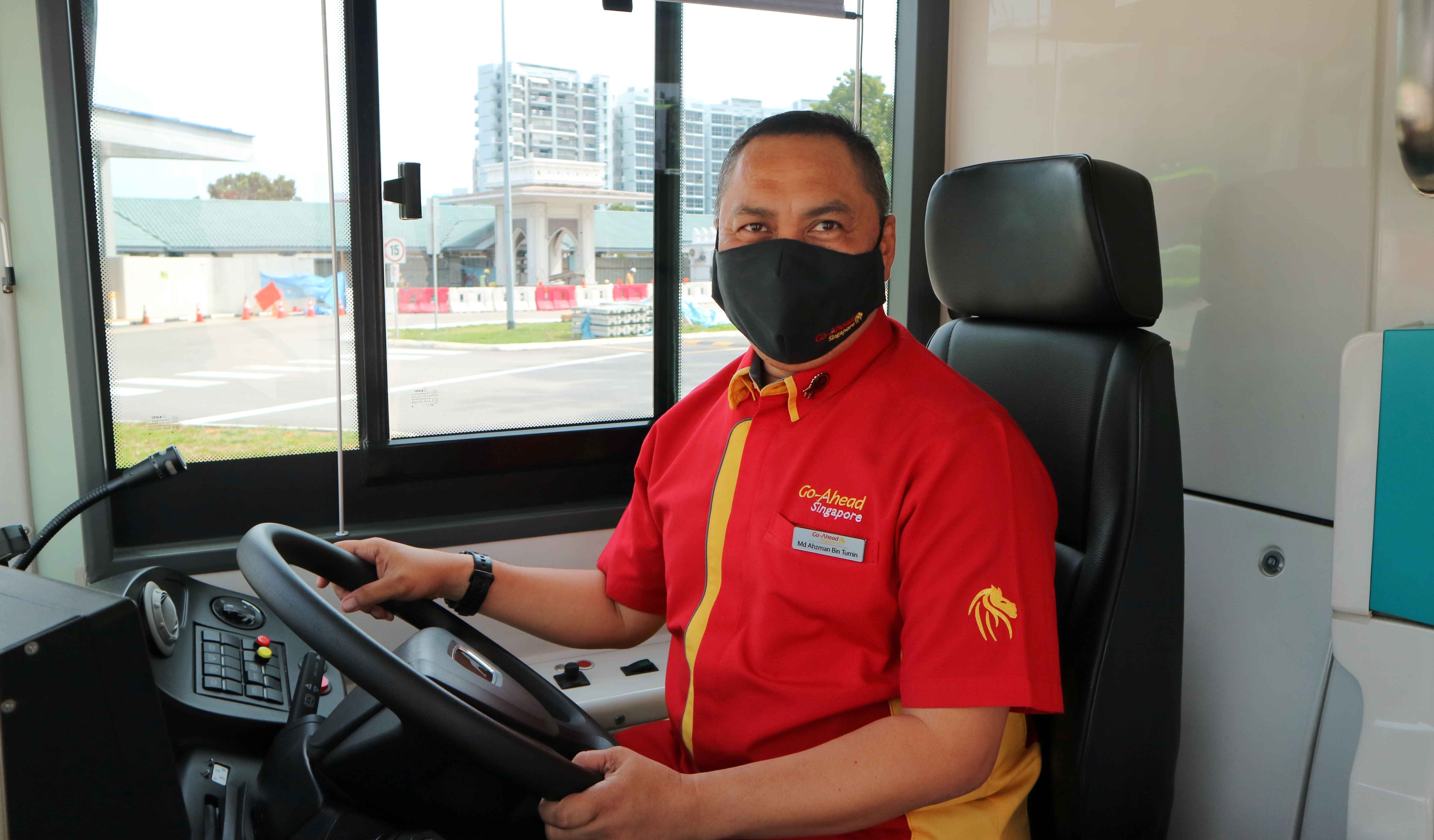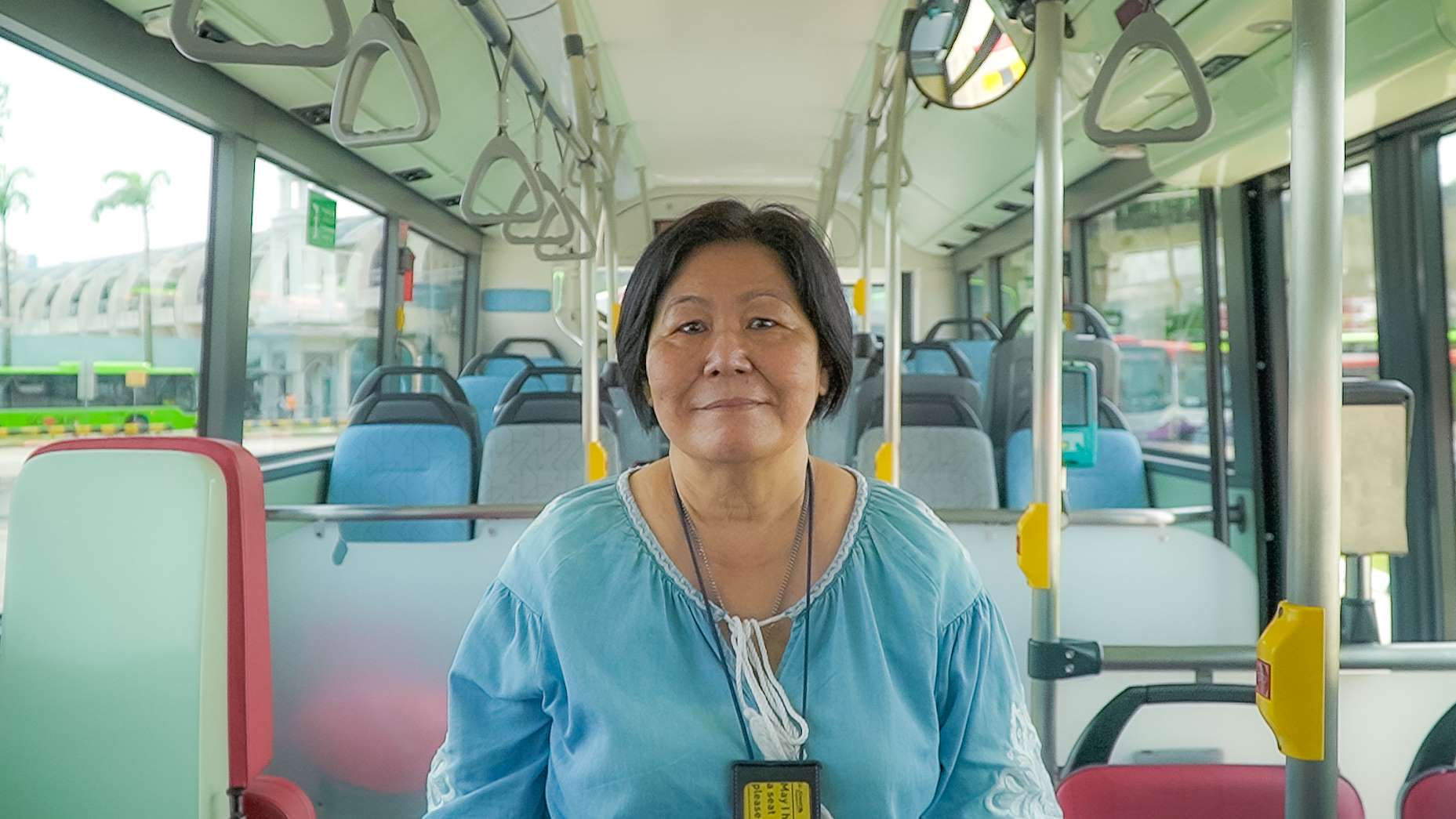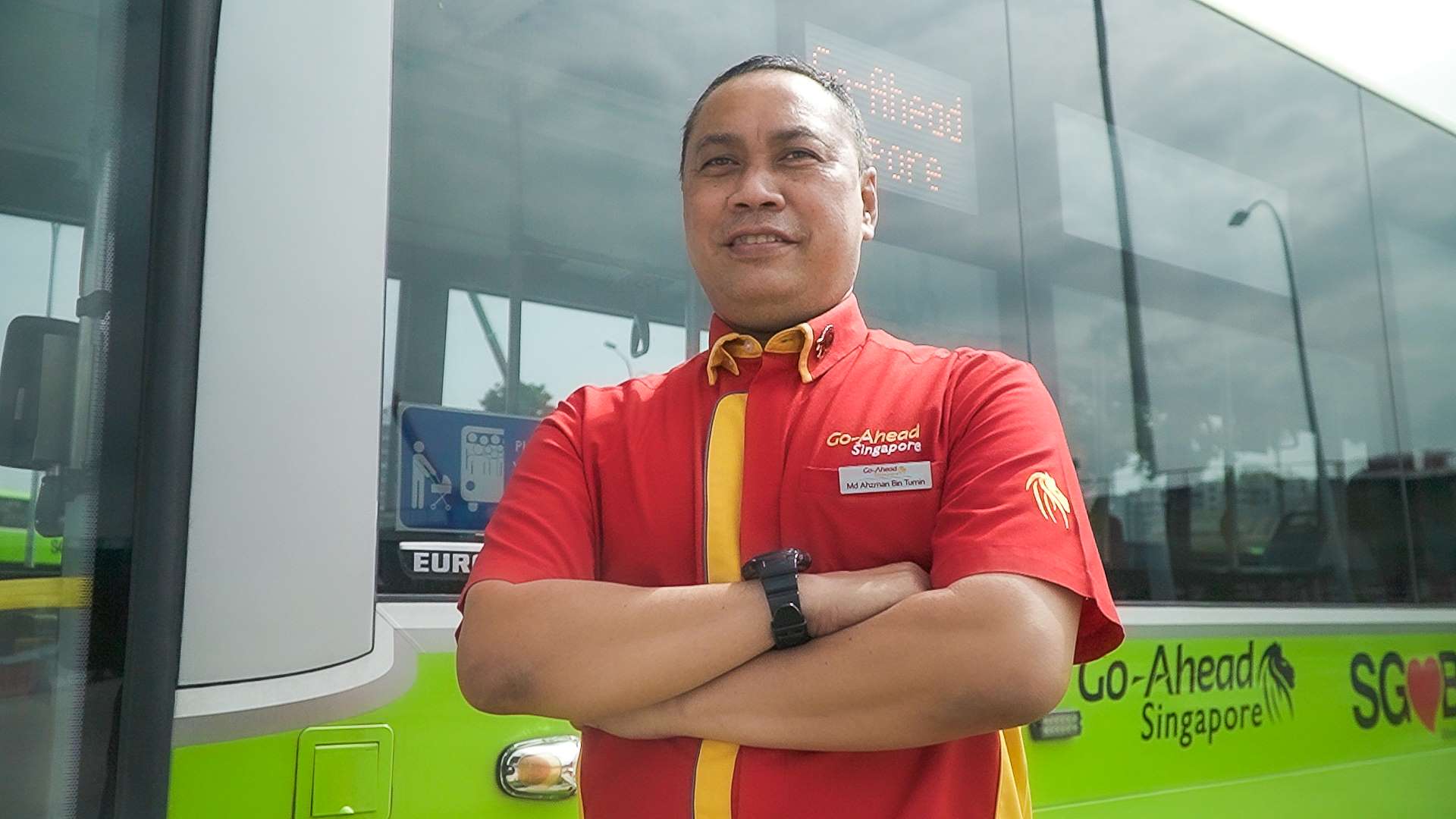Knowing When to Lend a Helping Hand

A New Public Transport Initiative
Whenever 65-year old Mdm Tan boards a bus, she always presents her Helping Hand card to the bus captain.
“This way, they will know to wait for me to sit down before starting to move off,” she said.
The first phase of the Helping Hand initiative was piloted in Singapore between November 2020 and January 2021, with the aim of enhancing the journey experience for commuters with physical and/or invisible mobility needs.
These commuters received a pocket-sized card which they can show to the bus captain to let him/her know that they need extra help:

Photo Credit: Go-Ahead Singapore
The initiative followed a similar pioneer project at a Go-Ahead bus operation in the UK, which had proven to be popular.
Mdm Tan received her card at Pasir Ris Bus Interchange, where bus services 354, 358, 359 and 403 were operating as part of the trial.

Photo Credit: Go-Ahead Singapore
Helping Bus Captains Better Understand Commuters
Chief Bus Captain Md Ahzman Bin Tumin shared why he found the initiative an important one.
“[Helping Hand] is our initiative for our commuters with physical and/or invisible mobility needs,” he explained. “With the card, it is easier for the bus captain to understand what assistance the commuter may need, and act accordingly.”
In his work as Chief Bus Captain, Mr. Ahzman also mentored other bus captains. He said that the bus captains had received encouraging feedback regarding Helping Hand from commuters.
Although Bus Captains are trained to wait for elderly passengers to be seated before moving off, the Helping Hand card helps commuters who might have invisible (medical) conditions to alert bus captains of any extra help they may require, so the bus captain can render them assistance.

Commuters Can Be Involved Too
When fellow commuters spot the card, they also readily offer their seat. Both Mdm Tan and Mr. Ahzman believed that the Helping Hand and other similar initiatives contribute to a more caring commuting culture in Singapore.
“People are already very proactive about giving up their seats for me,” related Mdm Tan. “However, I hope that even more commuters will take the initiative to help elderly on public transport in other ways as well.”
Beyond the immediate assistance that bus captains extended to commuters, Mr. Ahzman believed that showing care during a commute can have farther-reaching impact.
“When we lend a helping hand, it inspires others to do the same. By looking around and offering help to someone who is facing a difficulty, we can make a positive difference to their day.”
Following the well-received trial in Pasir Ris, the Helping Hand initiative will progressively be extended to other Go-Ahead Singapore bus services. Look out for the next phase at Punggol Bus Interchange.
Besides the Helping Hand trial, Go-Ahead Singapore is working with the Caring SG Commuters Committee on a permanent form of identifier for commuters with long-term conditions and invisible mobility needs.
Fellow commuters are also encouraged to offer their seats and to look out for those who require assistance on public transport.

Discover more inspiring stories and share your own experiences with caring commuters at www.caringcommuters.gov.sg/community
![IMG_8181[1]](https://www.caringcommuters.gov.sg/images/librariesprovider2/default-album/img_8181-1.tmb-.jpg?Culture=en&sfvrsn=fbcb55ce_4)